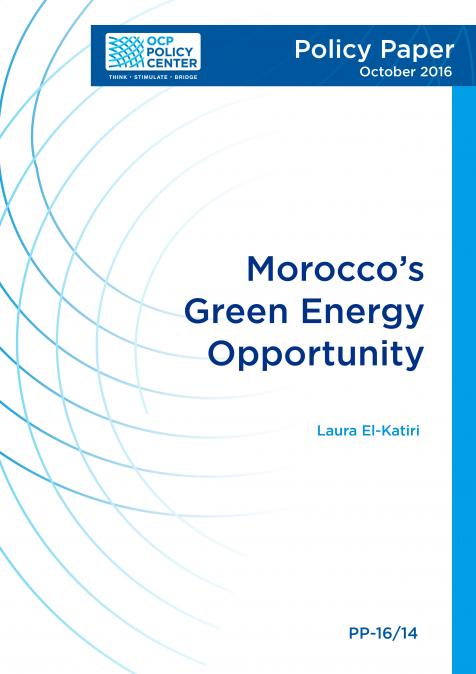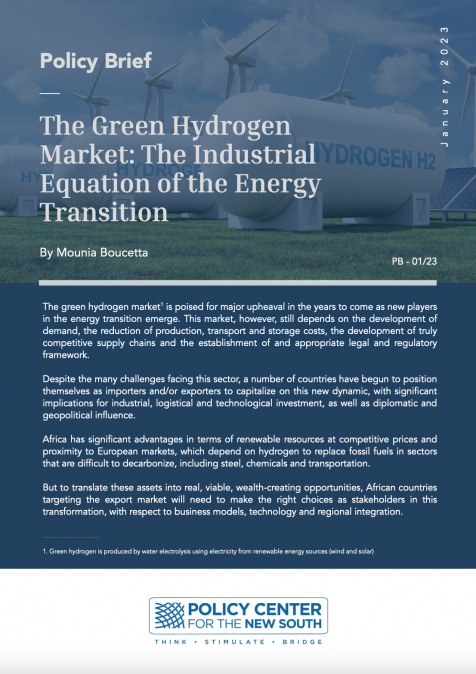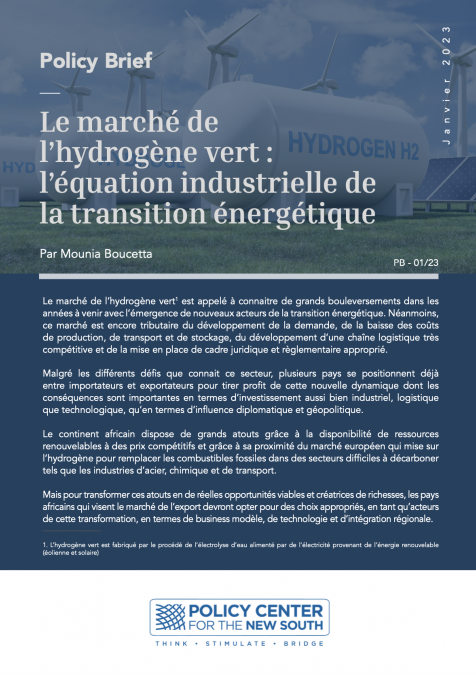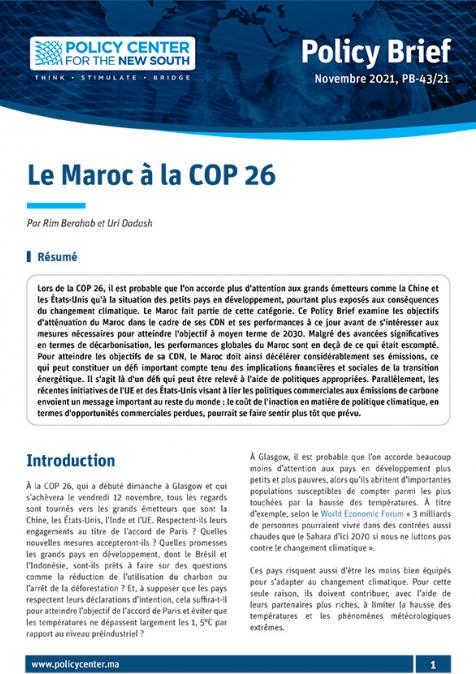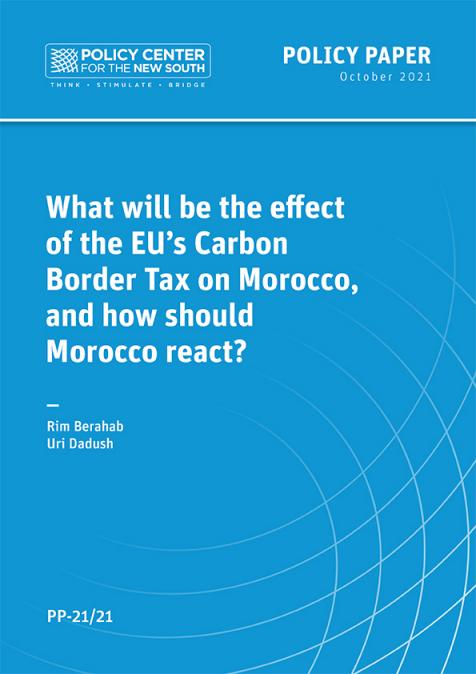Publications /
Policy Paper
Morocco’s energy landscape has been changing rapidly over the past decades. Alongside its own population growth, rising access rates to electricity as well as high rates of rural-urban migration and rising living standards, Morocco’s domestic energy needs have risen sharply since the early 1990s. This policy paper explores Morocco’s long-term energy options, focusing on “green” energy solutions that lie within Morocco’s natural competitive advantage. Using Morocco’s strategic assets – its strategic geographic location at the interception of Europe, North and West Africa and the Middle East; its political stability and its long-lasting, well-established relations with neighbouring Europe; its domestic market size, which is one of Africa’s largest markets for energy; and its abundance in its still under-utilised renewable energy resources solar and wind power – Morocco can benefit from a domestic clean energy transition. To maximise its use of these resources and to take up the vast opportunity Morocco faces in green energy – in particular in Concentrated Solar Power (CSP) – Morocco will need to add further policy focus on the area, and work actively to secure finance options, including from external sources. COP22 in Marrakech in November 2016 will in this context offer one important forum to further access to such funding while also working to open up future export markets, in particular Southern Europe.

